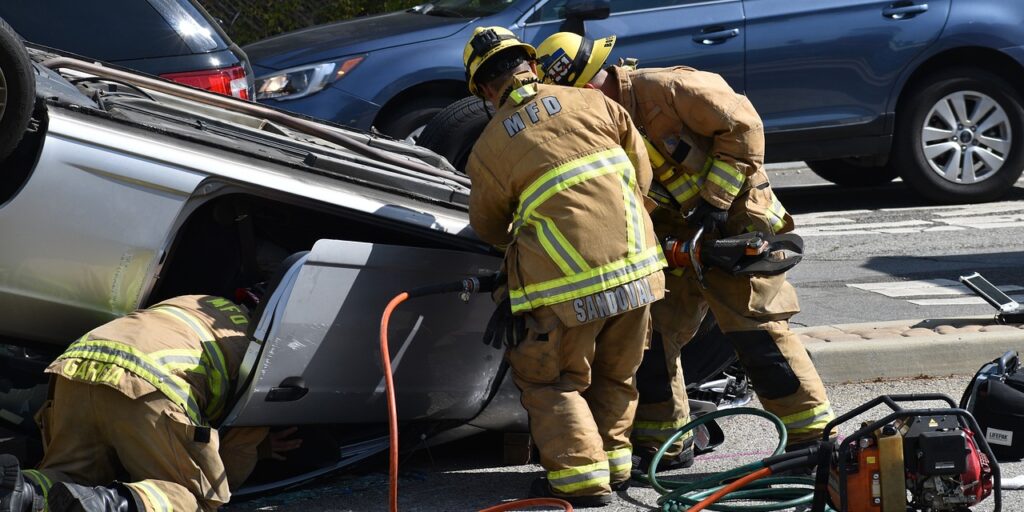- Poorly shovelled sidewalks will lead to slip and falls this winter - December 11, 2024
- Brain injuries are costly on an emotional and physical level - November 22, 2024
- Long-term disability payments could come with a tax liability - October 23, 2024
By Paul Russell, LegalMatters Staff • Passengers who suffer physical damages in automobile accidents in Ontario can make a claim for damages and it does not matter which driver was at fault, says Ontario disability and personal injury lawyer Joshua Goldberg.
“Ontario’s no-fault insurance system law dictates that auto insurance policies must cover injured passengers,” says Goldberg, principal of Joshua Goldberg Law. “But sometimes the injuries they incur will surpass the policies’ limits. In those situations, people need to work with a personal injury lawyer and launch legal action so they can recover from the accident.”
He explains that insurance claims are governed by Ontario’s Statutory Accident Benefits Schedule (SABS). It outlines the coverages available for drivers or passengers injured or killed in a motor vehicle accident.
For example, the basic SABS policy provides up to $3,500 for minor injuries, $65,000 for non-catastrophic injuries and a maximum of $1 million for catastrophic injuries
“In many cases, even the SABS upper limit does not provide enough money to allow an injured party to recover, especially if they require extensive and ongoing rehabilitation treatment,” says Goldberg. “If you suffer injuries as a passenger in a car accident, you have the same rights as drivers to claim compensation.
Basic accident benefits
He says the basic accident benefits pay for medical and rehabilitation treatment as well as:
- income replacement benefits;
- non-earner benefits; and;
- death and funeral benefits.
“It also covers attendant care benefits if round-the-clock care is required,” says Goldberg, “as well as other benefits depending on the severity and nature of the injuries.”
If a family member or friend was behind the wheel when the accident occurred, some injured passengers are reluctant to launch legal action against them, he says.
- Higher speeds on Ontario highways may lead to more collisions
- Optional coverage is the wrong way to cut insurance rates
- A primer on successfully claiming LTD benefits in Ontario
“That reluctance is understandable, but misplaced,” says Goldberg. “After all, the insurance company is the one that will end up paying the claim, not your friend or relative.”
If that person is found to be at fault for the accident, their insurance premiums will likely increase anyway, he says, even if the passenger does not pursue a claim.
Goldberg says passengers injured in accidents involving uninsured drivers can apply to the Motor Vehicle Accident Claims Fund.
‘Insurance payer of last resort’
“This fund is considered to be the “insurance payer of last resort,” he says.
According to information on the Fund website, people can apply if they:
- live in Ontario;
- were involved in a motor vehicle accident in Ontario where no one had auto insurance; and
- were injured or have property damage of more than $100.
“Injured parties can also apply if the other driver was at fault but left the scene of the accident before sharing identification or if the other vehicle was stolen,” says Goldberg.
According to Fund information, the Fund can pay Ontario’s minimum liability limits of up to $200,000 (including pre-judgment interest) per accident, plus legal costs.
Passengers must keep safety in mind
Although they are covered by the driver’s insurance policy, passengers must take responsibility for their own safety, says Goldberg.
“No one should get into a car driven by someone impaired by drugs or alcohol,” he says. “They should not get into a car with a driver who they know is overly aggressive or dismissive of speed limits and other safety rules.”
Goldberg advises passengers to consider the risks when travelling during heavy rainstorm torrential rain or snow storms.
“In those cases, waiting for the storm to pass is always the better option,” he says.
Goldberg offers this advice to passengers involved in auto accidents.
- Write down the details of what led to the collision.
- If police are called to the scene, make them aware of your involvement as a passenger and ask for contact information for the investigating officer(s).
- Obtain the names and contact information of any witnesses.
- Take photos of the accident scene on your phone.
- See a doctor or a healthcare provider for a full check-up, as some injuries do not present themselves for days or even weeks after an accident.
In most cases, a passenger will need to report a claim to an insurance company to begin the process of receiving accident benefits, says Goldberg.
“A claims adjuster will be appointed by the insurer to assess the passenger’s case and decide what benefits they are entitled to,” he explains. “The problem is that the adjuster is looking for ways to protect the insurance company’s best interests.
“That is why injured passengers should consult with a personal injury lawyer,” Goldberg says. “An attorney can advise them on their best options and guide them if a tort claim needs to be launched.”

